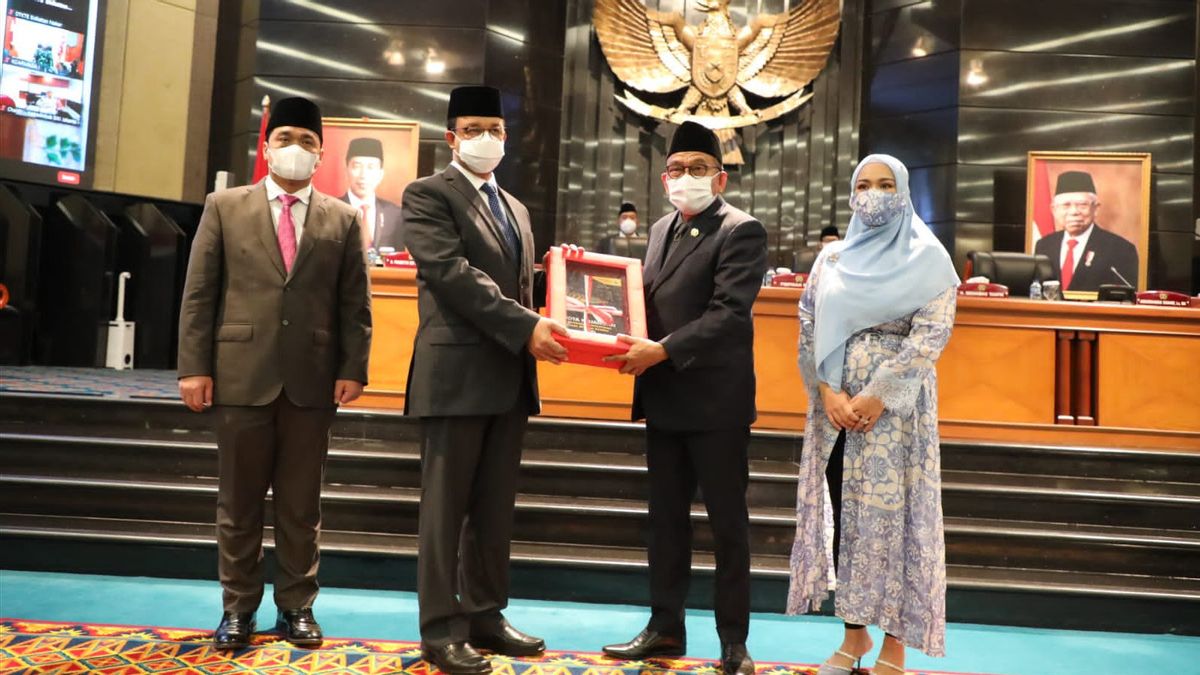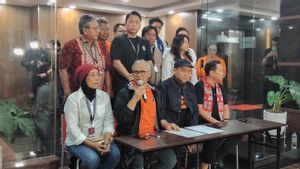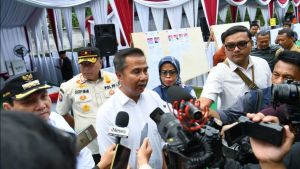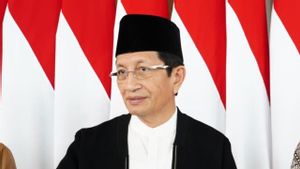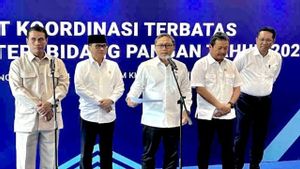JAKARTA - The DKI Jakarta Provincial Government and the DKI Jakarta DPRD have agreed on the DKI Regional Revenue and Expenditure Budget Draft (RAPBD) for the 2022 budget year amounting to Rp. 84,886,734,854,299 or around Rp. 84.88 trillion.
In delivering a speech at the plenary meeting of the signing of the 2022 DKI KUA-PPAS MoU, Anies said that the budget amount in his last year in office rose 6.25 percent from 2021.
"The total Draft Regional Revenue and Expenditure Budget for Fiscal Year 2022 is IDR 84,886,734,854,299 or an increase of 6.25 percent compared to the Revised Regional Revenue and Expenditure Budget for Fiscal Year 2021 amounting to IDR 79,890,235,901,247," said Anies at the DKI DPRD Building, Monday, November 15th.
Anies explained that the amount of regional income in 2022 is targeted at IDR 77.44 trillion, an increase of 8.77 percent compared to the 2021 DKI Regional Budget Change of IDR 65.20 trillion.
In detail, the planned regional income will be obtained from local revenue of Rp55.65 trillion, central government transfer revenues of Rp16 trillion, and other legitimate regional revenues of Rp4.90 trillion from grant income.
As for the original regional income plan, it is hoped that it will be obtained from regional taxes of IDR 45.70 trillion, the results of separated regional wealth management of IDR 793 billion, and other legitimate local revenue of IDR 8.35 trillion.
Meanwhile, regional spending in the 2022 budget year is planned at Rp75.65 trillion. The details are operating expenditures of Rp. 13.40 trillion, capital expenditures of Rp. 13.40 trillion, unexpected expenditures of Rp. 2.83 trillion, and transfer expenditures of Rp. 479 billion.
Anies said that the DKI 2022 RAPBD is planned to be used for purposes that have a sustainable priority scale.
"This aims to support the related regional economic recovery program, by accelerating the provision of public and economic service infrastructure to increase job opportunities, reduce poverty, as well as social protection and community economic empowerment," Anies explained.
"In addition, it is also to support the implementation of vaccinations, support the handling of the pandemic for village-level command posts, distribute incentives for health workers in order to handle the pandemic, as well as other health spending according to priority activities set by the central government," he added.
The English, Chinese, Japanese, Arabic, and French versions are automatically generated by the AI. So there may still be inaccuracies in translating, please always see Indonesian as our main language. (system supported by DigitalSiber.id)
